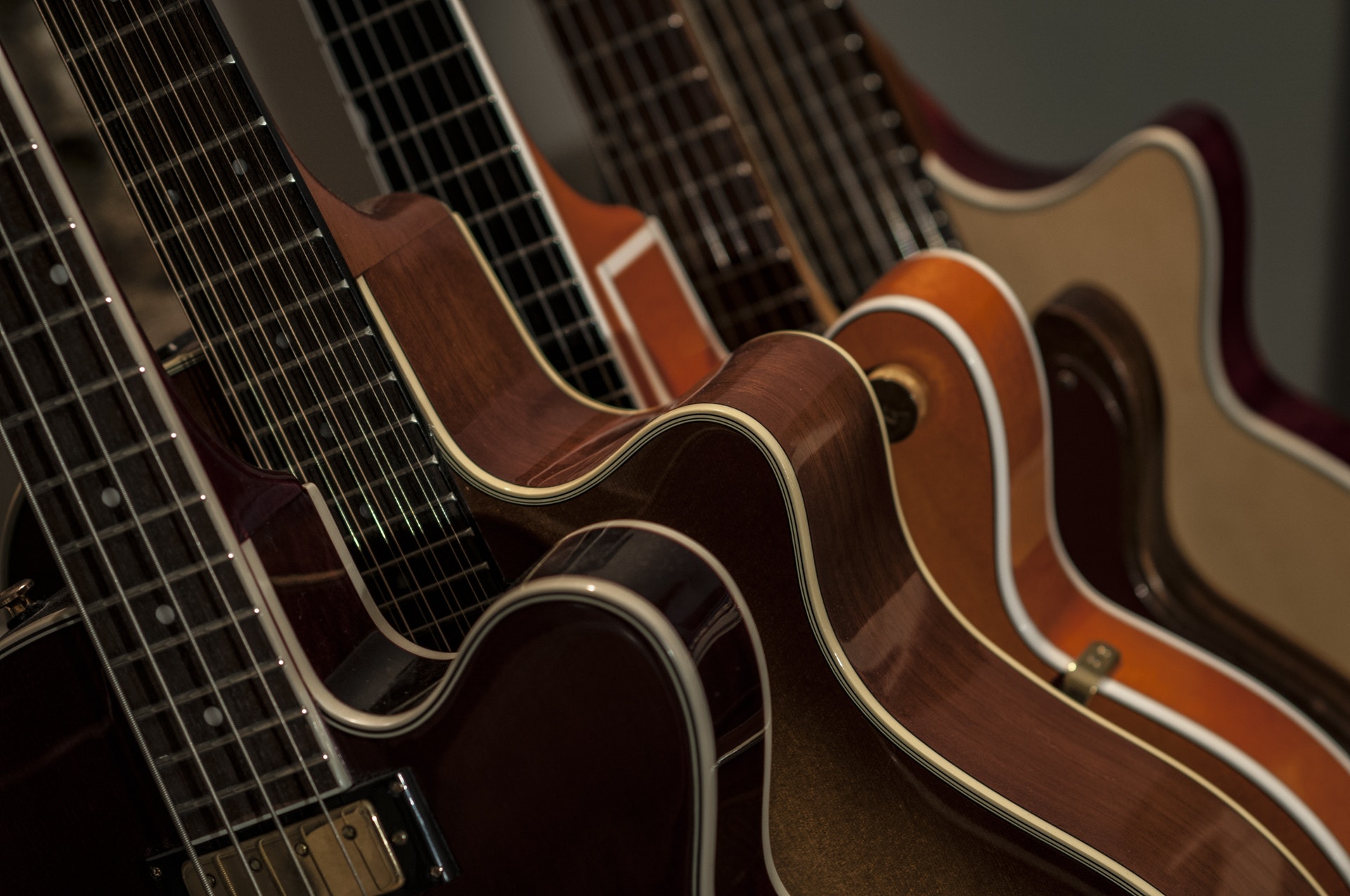Do Songwriters Have A Union?
With all of the recent strikes among the Writers and Actors guilds making headlines, it’s shined a lot of light on other areas of the entertainment industry – including music. If writers for television and film have union protections, do songwriters too?
Songwriters unfortunately do not currently have union representation, as they are not classified as a trade, and are looked upon as independent contractors in most circumstances.
The issue has been contentious within the arts world for many years. Especially when other sub-corners of the music realm do have trade unions.
You will find many songwriters associations and groups that have influence directly to the government, yet no unions have been officially sanctioned. So why don’t songwriters have a union?
Why Don’t Songwriters Have A Union?
It’s amazing to think that songwriters don’t have a union to back their cause. However, it comes as the sanctioning regulators don’t consider songwriters as employees – they look at them as independent contractors.
Many songwriters work as their own entity, and collaborate on multiple projects at any time. They are seen as licensing their work independently. Without direct employment from a company per se, it means they are seen as an independent contractor.
Through the National Labor Relations Act (NRLA) of 1935, independent contractors are excluded from the rights issued to unionized workers.
These laws have stayed relatively untouched since then across all industries, meaning that any independent contractor – including songwriters, is prevented from forming a union.
NRLA’s 1984 ruling
No bigger body blow came to the union attempt than an NRLA ruling in 1984. During a time when the government, then led by Ronald Reagan, was taking stances against unions, a group of composers and writers campaigned for the songwriting industry to form their union. The group was to be known as the Society of Composers & Lyricists. Attempts to get backing from the film industry’s Writers Guild of America failed, so the group put their case to the NRLA in 1984.
However, the NRLA looked over the case and classified the group again as independent contractors. This inherently stopped the union movement dead in the tracks. Appeals followed in both 1985 and 1993, but the verdict was upheld. Since then, there has been no official application for songwriters to have a union.
Why Songwriters Want A Union
For songwriters, their main prerogative to have a union is simple: to give them a clear voice within the industry. It’s a voice needed for several reasons such as:
- Handling royalty fees
- Licensing issues
- Working with studios
- Protection of copyright
It’s an understandable cause, particularly when many of these issues can be easily flouted and laws potentially broken without protection. But where to start with the issue?
Handling copyrights and licensing
Whenever any form of media is mentioned, copyright and licensing rules aren’t far away. However, for a songwriter, this is their main livelihood.
Many songwriters generate wages from the rights they own for their work. Any time a song is covered or used, they are entitled to be recognized for this work.
Rights organizations such as ASCAP & BMI were formed to create and protect these rights. However, their existence as a protective authority does not cover and provide the same security as what a trade union does.
Generating royalties
A lot of the fuss nowadays for songwriters to have a union comes down to receiving royalties. As streaming has become the main platform for music consumption, the way royalties are generated has changed.
No longer are royalties given out for every radio play or physical sale bought. Instead, small amounts are generated whenever a song is streamed on platforms like Spotify, YouTube or Apple Music.
The problem here is that the royalties songwriters receive are very small. For example, songs played on Spotify generate $0.003-$0.005 every time they are streamed. Out of this fee, only 70% of it goes to the right holders – the other 30% to Spotify.
Out of that 70%, it is divided between songwriters, composers, the artist and any performance rights holders. In 2019, that split was just 10.3%. However, a ruling by the US Copyright Board forced the rate to increase to 15% of the split.
This increase still means a songwriter may only get as little as $0.0045 for a single stream. It means that a song would need to be streamed 2.5 million times just for a songwriter to clear $1000 in royalties for their work.
This was highlighted in a letter by songwriting advocacy group The 100 Percenters, who underlined their push for a union. In this, group founder Tiffany Red highlighted that these royalties “contribute to a disproportionate distribution impeding our ability to earn a livable wage”.
This means that only those collaborating with global superstars like Taylor Swift or Ed Sheeran stand a chance to earn a decent living from just purely songwriting.
Are There Viable Potential Songwriters Unions?
Despite all the talk surrounding a union for songwriters, there remains one key critical point: are there any viable candidates to be the next songwriters’ union?
Well, some groups could very well be worthy candidates such as:
- Songwriters’ Guild of America
- United Musicians & Allied Workers
- The 100 Percenters
Each of these groups is led by a bevvy of heavyweight songwriters who have worked for some of the biggest names in the industry.
The Songwriters Guild of America is perhaps the best placed among all of these.
The SGA has been around since 1931 and has had a big role in the music industry. Having major roles in copyright and royalty battles, the SGA is considered one of the leading bodies in the industry.
Other collectives such as The 100 Percenters and UMAW are also pushing hard for industry change. They are also backed by some of pop’s biggest hitmakers and could help push for successful unionization in the future.
What about the AFM?
The big elephant in the room for music professionals is the AFM – the American Federation of Musicians. It’s the largest trade union for musicians in the world sporting over 80,000 members in the US and Canada.
However, it only covers a specific portion of the music industry. That’s because it only covers musicians who perform music in film, TV or theatre.
This includes orchestras, house bands and any other musician that plays specifically within that context of the industry.
Indeed, the AFM has lobbied and supported the cause of their mainstream colleagues getting the same recognition. However, without any changes to laws around independent contractors, it has made any campaigns difficult to back.
Do Other Countries Have Songwriters Unions?
On the whole, American songwriters aren’t alone in their struggles to form a songwriting union. But there is hope if you look across to what has been formed within Europe.
For starters, British songwriters are protected through their national union – the Musician’s Union (MU). MU has a separate stream that looks after the rights of writers and lyricists – the Music Writer’s Section Committee.
This union regulates and oversees how much writers and composers get for their work, and what fees they should receive over different periods. The committee itself is formed up of professionals who work in both the mainstream industry and within TV and film. This gives all songwriters based in the UK equal access to receiving fair compensation for their efforts.
In Mainland Europe, the main organization that looks after songwriter affairs is the European Composer & Songwriter Alliance (ECSA). The Brussels-based body is an association that looks after the affairs of all registered songwriters within the EU.
Representing three different bodies – APCOE, ECF and FFACE – ECSA is an international co-operative that protects rights across mainstream, film and art-based musical ventures. This includes handling issues for songwriters such as royalties, copyright issues, and the role of AI.
These bodies have only been formed and accepted as late as the early 2000s, showcasing that the fight for songwriters to have a union is still in its infancy.
Will Songwriters Ever Have A Union?
It’s not going to be an easy fight for songwriters to have a union. Unless federal laws are changed directly, their status as independent contractors will stop songwriters from getting their union.
However, there is some hope to be had. Alongside several music groups such as rights organizations and collective bodies gaining traction within the industry, they are having some success at winning legal battles.
The ruling to up songwriters’ stakes in streaming royalties is proof of this. With bodies such as ASCAP and BMI speaking up for the writers, there’s a chance that further acknowledgement could see songwriters gain further credits within federal walls.








